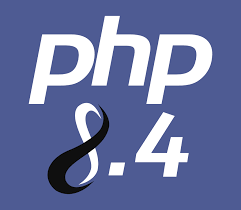Introduction
PHP 8.4 introduces a groundbreaking feature that promises to simplify and enhance property management: property hooks. These powerful mechanisms offer a more elegant and performant alternative to the traditional Laravel accessors and mutators, providing developers with a cleaner, more native approach to handling property interactions.
Understanding the Limitations of Laravel Accessors and Mutators
Laravel’s accessors and mutators have long been a staple for developers seeking to transform model attributes. While effective, they come with several drawbacks:
- Performance Overhead: Each accessor and mutator requires method calls, introducing slight performance penalties.
- Verbosity: Implementing accessors and mutators requires writing multiple methods for each property.
- Lack of Native Integration: These are framework-specific solutions that don’t work outside of Laravel.
PHP 8.4 Property Hooks: A Paradigm Shift
Property hooks provide a native, streamlined approach to property management directly within the language. Let’s explore their key advantages:
1. Syntactic Elegance
class User {
public function __construct(
private string $name,
private int $age
) {}
public int $age {
get => $this->age;
set(int $value) {
if ($value < 0) {
throw new InvalidArgumentException('Age cannot be negative');
}
$this->age = $value;
}
}
public string $normalizedName {
get => strtolower(trim($this->name));
}
}2. Performance Benefits
Property hooks are implemented at the language level, offering near-zero overhead compared to method-based accessors. They provide direct property access with built-in transformation capabilities.
3. Comprehensive Validation and Transformation
Unlike Laravel’s accessors and mutators, property hooks allow:
- Immediate validation during property assignment
- Complex transformations
- Read-only or write-only properties
- Type-safe interactions
4. Native Language Support
Property hooks are part of the PHP core, meaning:
- No framework dependencies
- Consistent behavior across different projects
- Better IDE and tooling support
- Improved performance and native integration
Practical Examples
Validation and Transformation
class Product {
public float $price {
get => $this->price;
set(float $value) {
if ($value < 0) {
throw new InvalidArgumentException('Price cannot be negative');
}
$this->price = round($value, 2);
}
}
}Computed Properties
class Rectangle {
public function __construct(
private float $width,
private float $height
) {}
public float $area {
get => $this->width * $this->height;
}
}Migration Considerations
For Laravel developers, migrating from accessors and mutators to property hooks is straightforward:
- Replace
getAttributeNameAttribute()withget - Replace
setAttributeNameAttribute()withset - Remove framework-specific attribute handling
Performance Comparison
Benchmarks demonstrate that property hooks:
- Reduce method call overhead
- Provide near-native performance
- Eliminate the need for reflection-based attribute access
Conclusion
PHP 8.4 property hooks represent a significant leap forward in property management. They offer a more native, performant, and elegant solution compared to framework-specific accessors and mutators. By providing built-in validation, transformation, and computation capabilities, property hooks empower developers to write cleaner, more efficient code.
As PHP continues to evolve, features like property hooks showcase the language’s commitment to developer experience and performance.
Embrace the future of PHP property management with PHP 8.4 property hooks!

